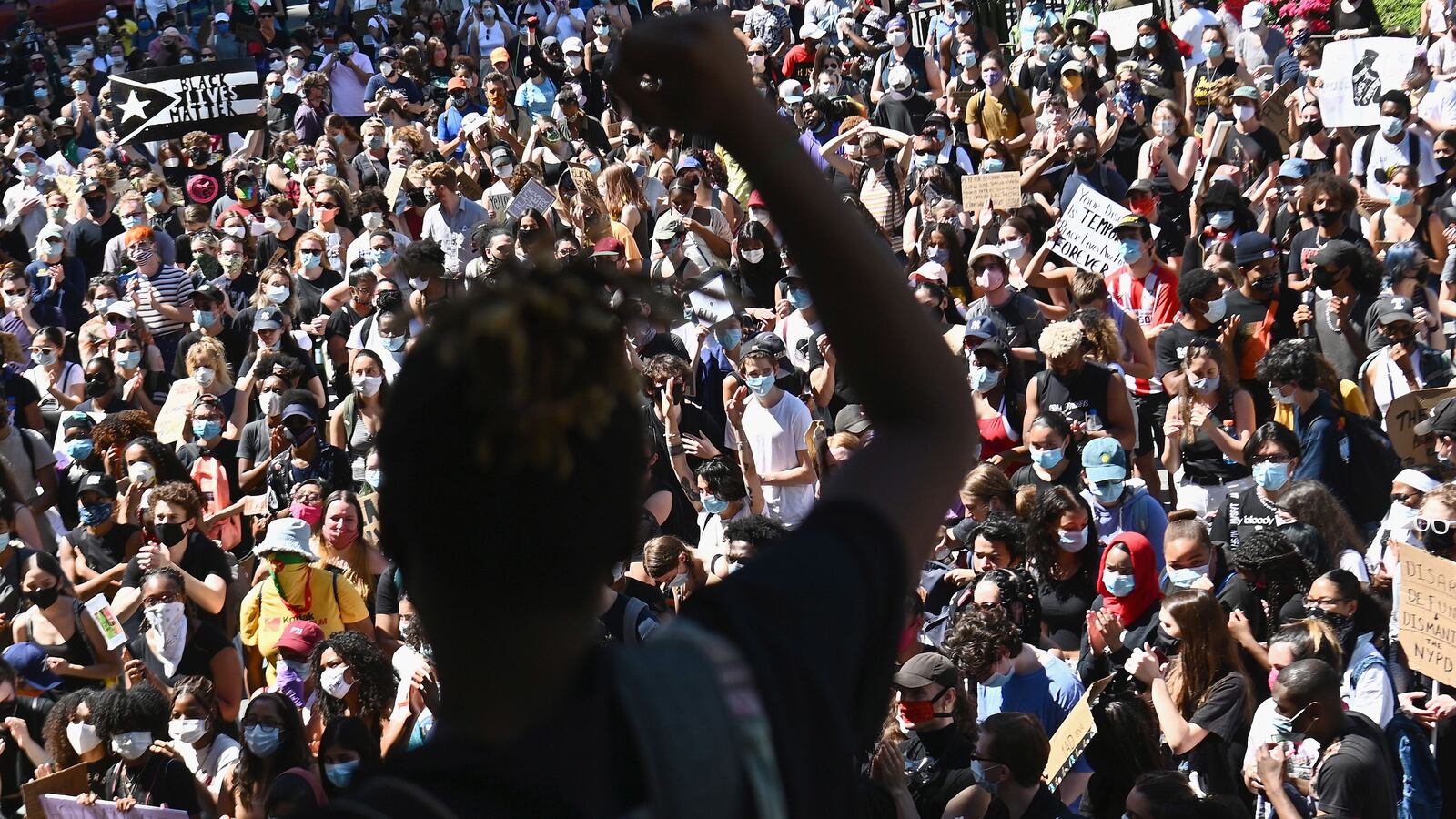Allies of President Trump have seized on mass protests sparked by the death of George Floyd as further reason to stand against expanding mail-in voting, one of the president’s chief grievances during the pandemic.
Trump himself has decried mail-in ballots as corrupt, even as officials have championed the method of voting in an effort to allow people to cast ballots without endangering their health by waiting in long lines or exposing themselves to other people who may be sick.
“Democrats’ push for universal mail-in voting has never been about health and safety – it has always been about politics,” RNC National Press Secretary Mandi Merritt said in a statement to The Daily Beast. “That was clear when Democrats called for more in-person voting in Nevada, after calling it a ‘national disgrace’ in Wisconsin. For liberals, social distancing only applies if it fits their far left agenda.”
The tone from the RNC is similar to other comments from Trumpworld in recent days.
“Seems like the “voting in person is dangerous” argument might lose some steam after all this non-social distancing,” Tim Murtaugh, communications director for Trump 2020 opined on Twitter of a video showing a large crowd at a weekend protest in Philadelphia.
“HOW STUPID ARE DEMOCRATS?” notorious Trump superfan Bill Mitchell tweeted Sunday. “Their ONLY hope for 2020 was fraud-by-mail and they just blew that to bits with these protests and riots convincing everyone NOT to be afraid of COVID-19.”
“Someone on insta I know went to a protest and then posted that we need mail in voting for November to be safe,” right wing personality Jack Posobiec tweeted Monday
“The past few weeks have shown America that there is no need to hold vote-by-mail elections,” former Wisconsin Gov. Scott Walker tweeted Saturday.
Though experts say a very small level of fraud can occur with mail-in ballots, it’s nowhere near the level that Trump has falsely claimed. And the president has provided no accurate evidence to back his outsized claims. The president has been fixated on unproven mass voter fraud throughout his presidency. But mail-in voting has become his major target during the pandemic, despite that Trump himself voted by mail as recently as this year.
That the protests would be used to try and attack the expansion of mail in voting during the pandemic, troubled voting rights advocates who have found themselves in an escalating long term public battle with the president.
“Clearly, some folks on the other side are so intent on making it more difficult to vote that they're willing to dispense of any shred of intellectual capacity they had left,” Seth Bringman, a spokesman for the Stacey Abrams’ voting rights group Fair Fight, said in an email. “Protests of police brutality and voting are each important steps in the fight for justice, but the difference is that people who are sick or especially vulnerable to coronavirus can decide not to attend a protest, but they must have accessible options to vote, particularly the option to vote by mail.”
The opposition to mail-in voting has not been uniform throughout the GOP. Republican election leaders in states like Georgia and Ohio embraced mail-in voting during the pandemic, even as Trump’s targeting of the approach has only grown more ferocious.
Other Republicans have rallied behind Trump’s fight over mail-in voting, even though the president’s issues with the practice could make life difficult for the GOP at the ballot box.
“There is NO WAY (ZERO!) that Mail-In Ballots will be anything less than substantially fraudulent,” Trump tweeted last month. “Mail boxes will be robbed, ballots will be forged & even illegally printed out & fraudulently signed.”
On the same day Trump threatened federal funding to Michigan last month as he claimed the secretary of state sent out millions of absentee ballots to voters (in reality, she had instead announced sending out applications to vote by mail) a GOP official holding the same post in Georgia was encouraging people in his state to vote absentee by mail for the state’s upcoming primary after earlier touting that forms for absentee ballot requests were headed to the state’s nearly 7 million voters.
Outside of the protests, others in the Republican party have cheered on efforts to limit how widespread voting by mail can become this year.
“Allowing universal mail-in ballots, which are particularly vulnerable to fraud, would only lead to greater election fraud and disenfranchise lawful voters,” Texas Attorney General Ken Paxton said in a statement following a court ruling in his favor last week.
Back east, a Tennessee court went in a different direction. According to the Tennessee Secretary of State’s website, an order from the Davidson County Chancery Court means registered voters in the state can ask for an absentee mail ballot if they’re worried about voting in person due to the virus.
The move was criticized on social media by Tennessee State Rep. Jeremy Faison who turned to the protest as part of his reasoning for the opposition. The Republican majority caucus chairman tweeted that he’s “not a fan of a judge that legislates from the bench.”
“If you can go shopping, you can go vote,” he tweeted. “If you can go out to eat, you can go vote. If you can go to church, you can go vote. If you can get out and protest, you can go vote. Wear a (mask) if you must.”
That kind of rhetoric further alarmed voting rights advocates. Using the nationwide protests as a way to attack mail in voting is “illogical,” said Kristen Clarke, the president and executive director of the Lawyers’ Committee for Civil Rights Under Law.
“It’s shameful that anyone would use protests ensuing over the tragic death of George Floyd as a basis to deny people access to absentee ballots,” Clarke said.
—Additional reporting by Asawin Suebsaeng




